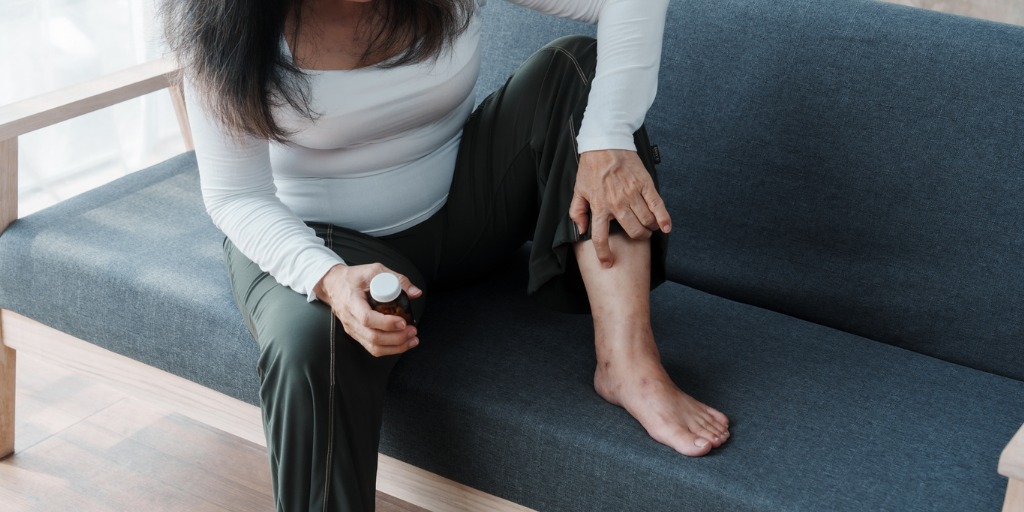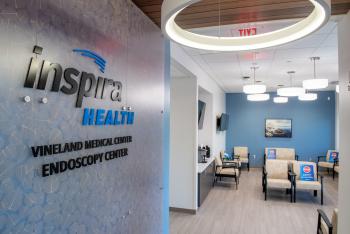Inspira Health hosted an open house for its new outpatient endoscopy center, located in the Medical...
Read More
Crohn’s disease, a chronic inflammatory condition affecting the digestive tract, is often associated with gastrointestinal symptoms such as abdominal pain, diarrhea and fatigue. However, its impact can extend beyond the intestines, affecting various systems in the body, including the skin. Skin manifestations are common in individuals with Crohn’s disease, and they can arise directly from the condition itself or as a reaction to medications used for its management.
One of the primary skin conditions linked to Crohn’s disease is erythema nodosum. This inflammatory disorder is characterized by painful, red nodules that typically appear on the shins but can also occur on the arms, thighs or torso.
Erythema nodosum is thought to result from the body’s immune response to inflammation in the intestines. It’s the most prevalent skin manifestation observed in Crohn’s disease, impacting up to 15 percent of patients.
“Adhering to your treatment plan for Crohn’s disease should help improve this skin symptom,” said Sara Attalla, M.D., a gastroenterologist at Inspira Medical Group.
Another skin issue associated with Crohn’s disease is pyoderma gangrenosum, a rare but severe condition characterized by painful ulcers that typically develop on the legs. These ulcers can rapidly enlarge and deepen, leading to extensive tissue damage. Pyoderma gangrenosum is believed to result from an abnormal immune response and inflammation, similar to erythema nodosum.
“Pyoderma gangrenosum is rare—it only affects up to 5 percent of people with Crohn’s disease,” said Dr. Attalla. “You can treat it with medication and by keeping the wound covered to let it heal.”
Skin breakouts can be a worry for certain individuals with Crohn’s disease. However, these eruptions are not caused by the condition itself, but rather by the steroids used in its treatment.
“Typically, your doctor will prescribe steroids for short-term use to alleviate Crohn’s flare-ups,” Dr. Attalla explained. “Once you stop treatment, your skin should gradually clear up.”
Beyond these specific skin conditions directly linked to Crohn’s disease, you may also experience general skin issues such as psoriasis, eczema, blisters, skin tears or skin tags. “These conditions may arise independently or exacerbate existing symptoms due to the systemic inflammation and immune dysfunction associated with Crohn’s disease,” said Dr. Attalla.
The medications used to manage Crohn’s disease can also have notable skin side effects. Corticosteroids, prescribed to reduce intestinal inflammation, may lead to skin thinning, bruising and heightened infection risk. Immunosuppressants like azathioprine or methotrexate may lower immune function, potentially increasing susceptibility to skin infections or cancers. Biologic therapy, while a groundbreaking treatment for Crohn’s, can also have skin-related side effects such as injection site reactions, rash or itching.
Understanding these skin manifestations is crucial for comprehensive management. “Close collaboration between your gastroenterologists and dermatologists is important and can improve the quality of life for individuals living with Crohn’s,” said Dr. Attalla.
Are you experiencing skin issues as a result of Crohn’s disease? Learn more about Inspira’s team of experienced gastroenterologists here.

Inspira Health hosted an open house for its new outpatient endoscopy center, located in the Medical...
Read More
Symptoms of food intolerances, sensitivities and allergies can look similar, but they’re three...
Read More
Do common gastrointestinal disorders like IBS, IBD and Colitis lead to colon cancer? Learn more...
Read More
The material set forth in this site in no way seeks to diagnose or treat illness or to serve as a substitute for professional medical care. Please speak with your health care provider if you have a health concern or if you are considering adopting any exercise program or dietary guidelines. For permission to reprint any portion of this website or to be removed from a notification list, please contact us at (856) 537-6772